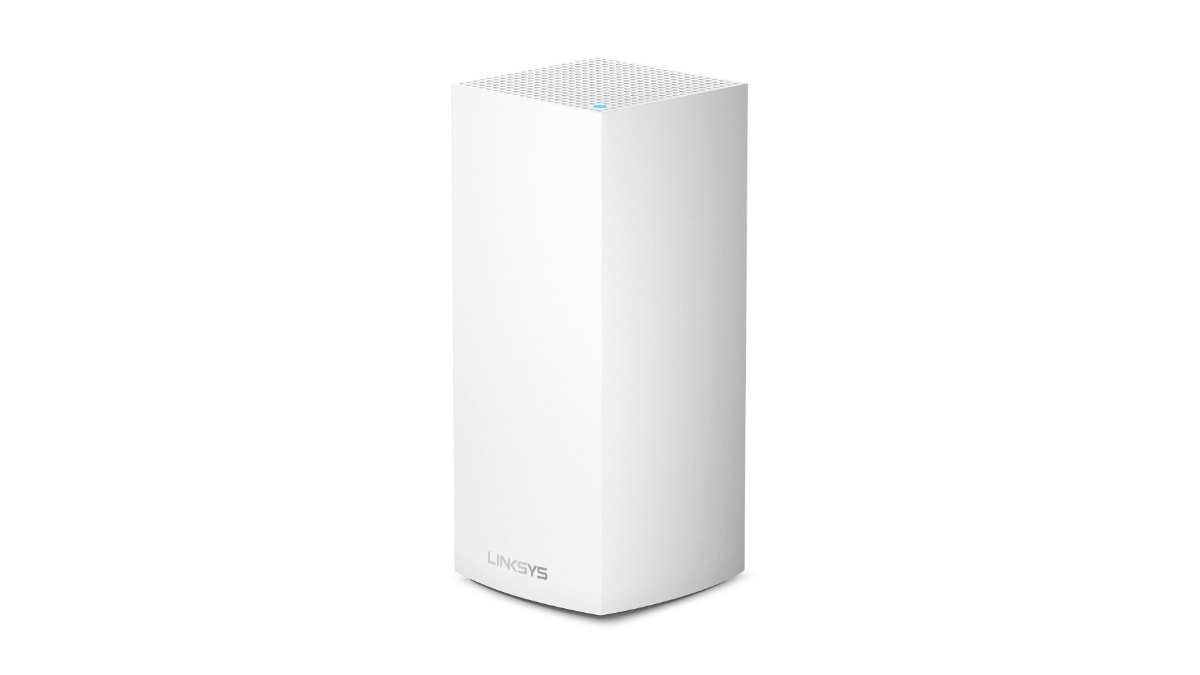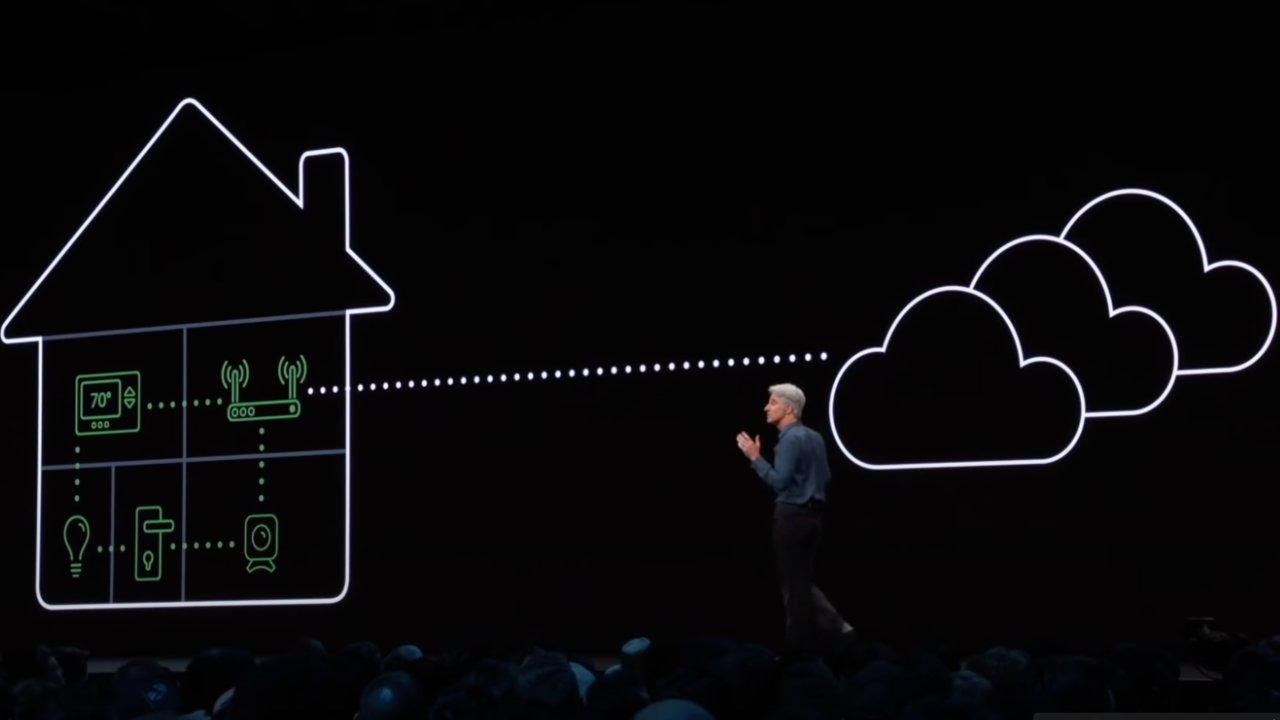Apple has effectively abandoned HomeKit Secure Routers
Apple's HomeKit Secure Routers were announced in 2019 but never really taken up by manufacturers, and now some vendors are claiming Apple is no longer pursuing the technology.
HomeKit Secure Routers were introduced by Craig Federighi at WWDC 2019 and in the same breath as HomeKit Secure Video. The latter took time to reach the market, but it was used, and many manufacturers adopted it, even if others would not.
During CES 2024, two router vendors separately told AppleInsider that Apple is no longer accepting new routers into its program. If that claim is correct -- and it probably is, since it came from the same rejected manufacturers -- given the lack of HomeKit Secure Routers on the market, it appears that Apple has abandoned the idea.
Note that AppleInsider cannot absolutely confirm what the vendors claim. And Apple still has active support pages on the matter.
But, it still has support pages on AirPort routers too, and those are as dead as a doornail.
Apple's original proposition
The idea was that "with HomeKit at the router, we'll automatically firewall-off each of your accessories." So "even if one were to be compromised, it wouldn't be able to access your other devices."
"Many accessories don't just connect via HomeKit," Federighi said in 2019, "they also connect via the internet and through your router, and unfortunately, this can leave them open to attack."
"We want to make sure that this can't happen," he continued. "And so we're bringing HomeKit to routers."
At this 2019 launch, Apple said that "the first HomeKit-enabled routers will be coming from Linksys, eero, and internet service providers like Charter Spectrum."
HomeKit Secure Routers have been abandoned in all but name
Even if these unrelated vendors were both mistaken, and Apple has not abandoned HomeKit Secure Routers, it effectively has.
More than four years later, Apple currently lists two HomeKit Routers on its site. They are the Linksys Velop AX4200 and the AmpliFi Alien.
Currently, eero has a notice saying that its eero Pro 6E and eero 6+ do not support Apple Home Kit," and also that "we have no plans to offer Apple Home Kit's router functionality on eero Pro 6 E and eero 6+.

LinkSys Velop AX4200 router
Linksys has so far ignored requests to comment. An eero spokesperson did offer a comment, but didn't answer AppleInsider's question.
"HomeKit devices can connect to eero over Wi-Fi and Thread," said the eero spokesperson, "but we do not offer Apple's HomeKit router functionality on our latest devices"
While eero will not say why it has dropped HomeKit Secure Routers, there doesn't appear to be any plan to reintroduce them.
We asked Apple directly about it. We got a response -- but we weren't allowed to use in any way, and it didn't contain any substance about the product line as a whole anyway.
Of Apple's two remaining HomeKit Secure Routers listed on its site, the Linksys Velop AX4200 and the AmpliFi Alien, AmpliFi's own description doesn't mention HomeKit. The current Linksys listing does state that it works with HomeKit, but doesn't mention HomeKit Secure.
So that's one of Apple's 2019 launch partners gone and another reduced to a single under-promoted product. Even at that 2019 launch, the Charter Spectrum partnership seemed a bit of a stretch, and today it's hard to prove it ever released a product.
That's an abandoned standard, right there.
Apple hasn't closed the program, but it is effectively dead and stinks of vendor disinterest. Perhaps there could be more vendors signing up, or maybe Apple has big plans.
After all these years of the line being inert, though, it seems unlikely.
Apple could itself make such a router, since it used to make them long before the idea of HomeKit Secure Routers was announced. However, it discontinued its last such AirPort in April 2018, the year before it announced this HomeKit Secure Routers program.
Read on AppleInsider


Comments
Abandoning Airport based product development was a weird move back in the day. It's even weirder now.
Routers and associated network gear (home storage/NAS) are perfect candidates for modern day, easily upgradeable solutions with simplified user facing configurations. They are also perfect candidates for AI based protections and superior hardware resources (a perpetual failing of consumer routers).
Isolating IoT from the rest of your home network is a best practice and should be standard in this day and age. Apple, let’s be open about it, so that any router manufacturer can implement these best practices without requiring certification.
Maybe… the reason why AirPort routers have pages is… because it was an Apple's product.
Yes, I retired my AirPort Extreme 'tower' because I was concerned that it was becoming unsupported, it was working fine. It's good that the documentation is still available but I worry that it might not receive security updates in future.
A new Apple router would be very welcome.
but this is a shame because they are critical infrastructure and Apple has the resources to make an excellent product if they wanted to
edit:
also I would much prefer an advanced/excellent router vs a fancy VR gimmick
It's still working well enough on my eero 6 Pro mesh setup, and it's ideal for those devices I want to lock down entirely, such as forcing Eufy cameras to use only HKSV rather than Eufy's own cloud. However, the "automatic" mode has always been nearly useless as few manufacturers ever provided Apple with the necessary firewall rules. Of the dozen or so different HomeKit devices I have, only Logitech, ecobee, and Hue ever offered specific rules, and a few months ago, my Hue bridge stopped accepting the automatic mode — the Home app just keeps saying it won't apply the settings anymore.
Eero and other mesh wifi devices are slowly encroaching on smart home connectivity such as being thread hubs or zigbee hubs. This is a slow constriction of Apples home aspirations and I see no gameplan to remain relevant.
Why not have the HomePods act as mesh wifi? Clearly the trend is to have the computational horsepower and add some augmented wifi circuitry and antennas. Not ideal likely but could potentially work.
Apple with its gross margin targets will unlikely compete successfully with dedicated mass market mesh wifi.
Apple is needed to support the last mile Mesh routers and servers I know it's unfair to Google, Amazon, Microsoft, Meta and the DOJ will assigned blame to Apple.
https://www.reddit.com/r/apple/comments/1bkzvjy/doj_lawsuit_says_failure_of_amazon_fire_phone_end/ Mind blowing (Gobsmacked) I can't believe they actually put that in writing. My fear is that the more stupid it is the greater the chances of it being successful to a jury in the current world.......The concept of Apple being its own Grandpa (a Monopoly of its own product), and Apple is to blame for trying to make a better product in comparison to the competition is incredible.
FWIW, I do still run apple airports, and as others have mentioned, worry that they will be a security risk (or perhaps already are.) However, I also do think that if a vulnerability is discovered, it would be widely known, and such a black-eye for the privacy champion Apple that they would perhaps be proactive with a fix. Maybe not, given the age of these devices they vintaged/ obsoleted quite long ago.
But while we're on the subject here in this thread, I can think of many products apple could make that would be successful and popular, not the least of which is a simple mesh router system with an on-board VPN they offer for a subscription (and make open to other VPN providers to keep the DOJ happy.) I sort of wonder if these devices could take the same form factor as an Apple TV. And given that ATSC3.0 has some interesting features for OTA communications, maybe an Apple TV box with a coax cable connector for an antenna, and on board tuners? Yes, this is all a pipe dream, but isn't that what we are here for?
It's pretty clear where Apple's priorities are today and where their priorities were leading up to today. Products like Apple TV and HomeKIt are still alive, as is the iPad mini and iMac, but they certainly aren't getting the kind of love that iPhone, Apple Vision Pro, "AI," Apple Silicon, and MacBook Pro/Air are getting. My guess is that Apple puts its highest priority on products that can dominate the markets they serve. In my opinion, HomeKit is probably in a slow burn mode because of open standards based initiatives like Matter and Thread. Apple can certainly play in an open standards based market, but can they dominate such a market? In terms of Matter/Thread compatible devices, Apple doesn't really have a big footprint when it comes to the number and variety of devices it sources into that market. My guess is that Apple will keep their finger on the pulse of what's happening in the open standards area, but they probably feel no compelling reason to try to drive that market. They'll jump in when an opportunity presents itself where they can differentiate their offerings from the crowd and reap the benefits with a relatively low investment in resources, but the bulk of their strategic investments will continue to be areas where they become the de facto standard by driving the market and dominating when it comes to profitability.
I'd say the market for general purpose networking gear like AirPort routers is not even on Apple's lowest level of funded initiatives. They currently have no need to play in that market.